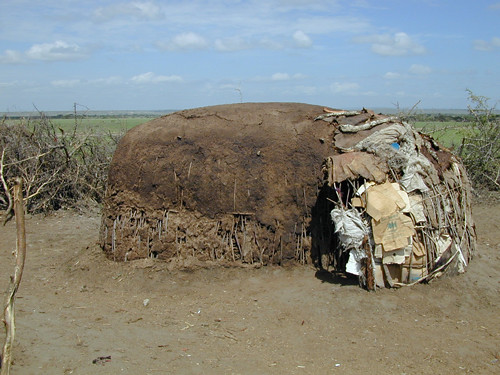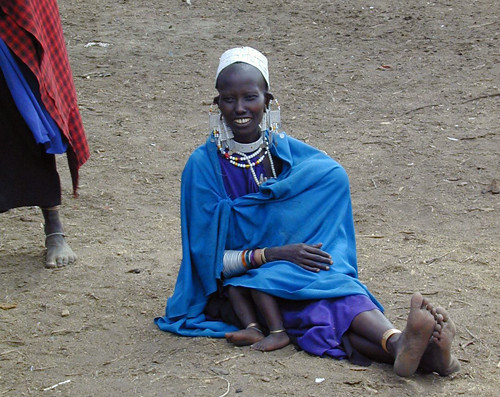
Sitting at home sick gave me a chance to read the sort of online news items that I seldom have time for. This one, via Reuters' Alertnet called up memories from a decade ago:
On a trip to Tanzania nearly 10 years ago to hike Mt. Kilimanjaro and see wild animals, we were offered the opportunity to visit "a Maasai village." I was uncomfortable. The encampment was set up just off a highway; it gave the sense of being a sort of human zoo. We each paid $10 to enter.Kenya: Maasai women say they’ll combat discrimination, but it will take time
Cows are the bride price men pay for their wives, with the average around 10. According to community traditions, when the bride arrives, she does not enter the village, she stands at the gate until the man offers her a cow. She takes a step. He offers another, she takes a second step, until she is able to negotiate an acceptable number.
But the woman does not own the cows; she can feed her family or gain an income from their milk, but she cannot sell them. Women in Maasai culture own nothing, they inherit nothing and live their lives clamped under the authority of men. ...
...The women in Entara express their anger and frustration about the cultural practices such as genital mutilation, child brides and polygamy. They do not approve of them, but have no say. Kisieku says she was powerless when her daughter was given in marriage last year at the age of 16. Her husband just made the arrangements, challenging him was not an option.
The oppression of women is embedded in Maasai culture, despite the significant social and economic role they play within the community. They have to fetch water and feed the cows, build their houses, cook and maintain the home and look after the children. Looking after the animals is integral to the local economy although women face serious threats to their lives and security in doing this.

After greetings from a male elder, we were allowed to walk around and look at people. A few of us -- all women -- were encouraged by hand signs to crawl into one of the brush and hide structures that serve the Maasai as shelters. There, Maasai women asked for a little more money, anything we could give. A very old woman who spoke a little English explained that the women would get nothing from the men for hosting us and dancing for us -- could we give just a little more, for them? Of course we gave. I have no idea whether this was a ruse to get more out of the zoo's visitors or the women really managed to keep the money.
I am haunted by the condition of those women. I am haunted by the reality that a small minority group has to sell its culture as a tourist attraction.
The Alertnet article reminded me of the conditions women face in so many parts of the world.

1 comment:
i hope that you are feeling better. salemtik we say.
Post a Comment